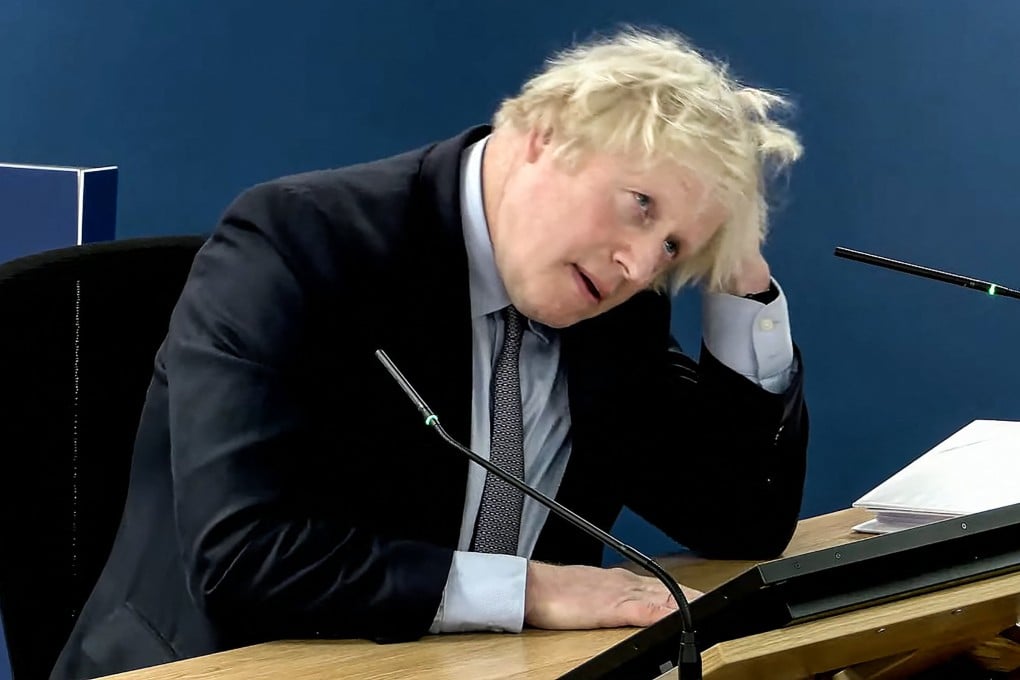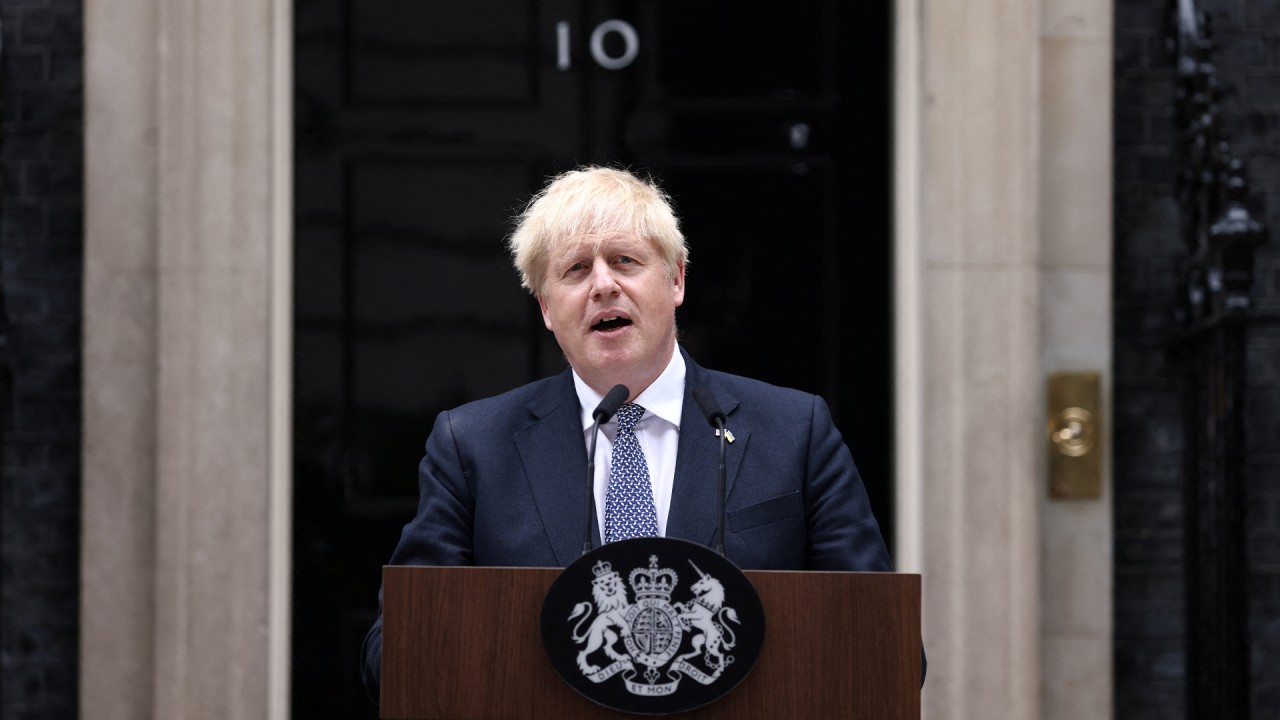Former UK PM Boris Johnson apologises to families for ‘pain and loss’ at Covid inquiry, defends health record
- Johnson resigned after a series of scandals, including reports he was at gatherings in Downing Street when most people in the UK were forced to stay home
- The inquiry has already heard damaging testimony about Johnson’s handling of the crisis, including claims of government incompetence

Former British Prime Minister Boris Johnson said on Wednesday he was deeply sorry for the loss of life during the Covid-19 pandemic as he appeared as a witness at the official inquiry into Britain’s handling of the pandemic.
Johnson said at the start of the hearing how glad he was to give evidence and how sorry he was for the suffering of victims and their families, but also defended his health record.
The hearing was disrupted by a protester, who was asked to leave by the inquiry’s chairwoman.

“Can I say that I understand the feelings of the victims and their families, and I am deeply sorry for the pain and the loss and the suffering of those victims and their families,” Johnson said.
Four people stood up in court as he spoke, holding signs saying: “The Dead can’t hear your apologies,” before being escorted out by security staff.
“Inevitably, in the course of trying to handle a very, very difficult pandemic in which we had to balance appalling harms on either side of the decision, we may have made mistakes,” Johnson said.
“Inevitably, we got some things wrong. I think we were doing our best at the time.”
